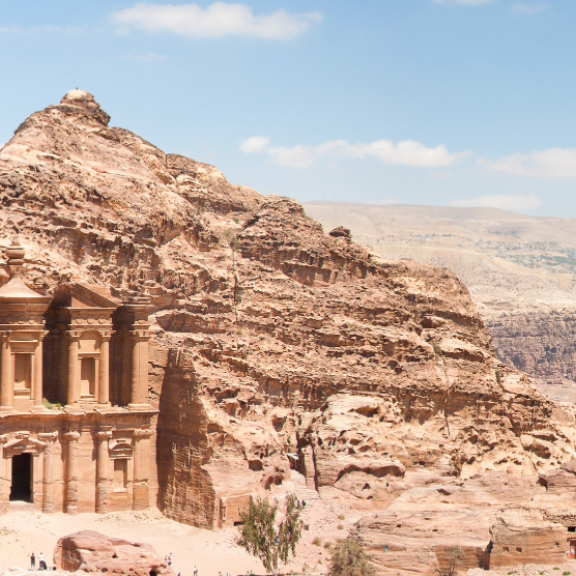
Emigrate to Jordan
Emigrate to Jordan: Find out the most important information for your stay here
Emigrating to Jordan can be an enriching decision for people looking to start a new chapter in their lives in the Middle East. The country offers not only a fascinating history, but also a cultural diversity that makes it an exciting destination for emigrants. Jordan is known for its hospitable population, which makes it much easier for newcomers to settle into their new life.
Emigrating to Jordan means coming to a society where helpfulness and openness are very important. People go out of their way to support each other, and many emigrants report a warm consignee. Living in Jordan allows you to live in a region of the world that is both culturally and historically significant. Those who live here can quickly find a new home and enjoy life in an interesting and dynamic environment.
Facts about Jordan
Capital City
Amman
Population
11,518,577 million
Surface Area
34,495 mi² or 89,342 km²
Continent
Asia
Official Language
Arabic
Currency
Jordanian dinar (JOD)
Emigrating to Jordan: An overview of the political system
Emigrating to Jordan means moving to a constitutional monarchy with a stable political structure. King Abdullah II plays a central role and has wide-ranging powers, including appointing the prime minister, dissolving parliament and approving laws. The country's political system comprises a bicameral parliament consisting of the Senate and the House of Representatives. The members of the Senate are appointed directly by the King, while the members of the House of Representatives are chosen by election. Despite its geographical location in an often unstable region, Jordan is considered a comparatively stable country. Anyone wishing to emigrate to Jordan will find moderate politics and close relations with both Western countries and its Arab neighbors.
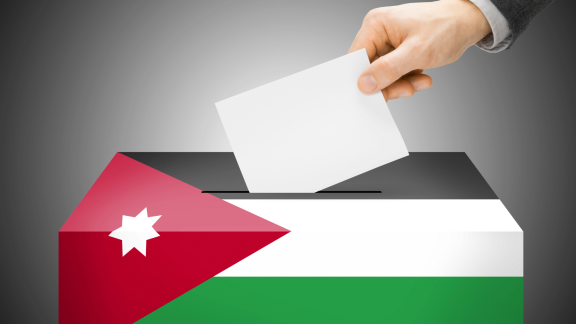
Climate in Jordan: Important information for emigrants
Emigrating to Jordan means adapting to a diverse climate that ranges from Mediterranean to desert-like conditions. The northwest has a Mediterranean climate with mild, wet winters and hot, dry summers, with most rainfall occurring between November and March. At higher altitudes, there can even be snowfall in winter. The south and east of the country are characterized by a dry desert climate with extreme temperature fluctuations between day and night. While summers are particularly hot here, winters are usually mild but can be cool in higher regions. In general, most rainfall occurs in winter, especially in the northwest, while the desert regions remain very dry all year round. Anyone wishing to emigrate to Jordan should therefore be well prepared for the climatic differences depending on the region.
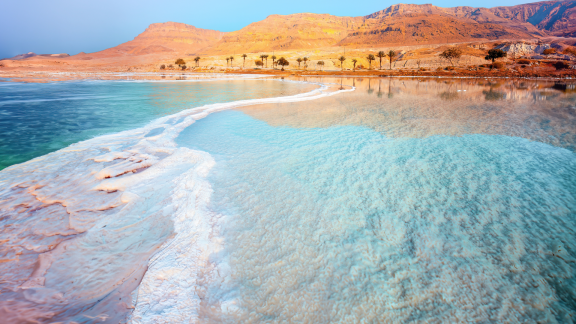
Healthcare system in Jordan: Important facts for emigrants
Emigrating to Jordan means familiarizing yourself with the country's healthcare system. The public healthcare system is funded by the government and offers basic medical care, but is not always free. The private healthcare system is characterized by high quality in modern clinics and hospitals, but is more expensive. Many doctors speak English, which makes communication easier. It is recommended to take out comprehensive health insurance that covers both public and private healthcare services. Jordan has become a popular destination for medical tourism, which underlines the high quality of medical care. Significant progress has been made in the healthcare sector in recent years and pharmacies are well stocked with a wide range of medicines. Anyone wishing to emigrate to Jordan should therefore find out about the healthcare system and suitable insurance options at an early stage.

Emigrating to Jordan: An overview of the economic situation and quality of life
Jordan had a gross domestic product per capita of 4,682.08 US dollars in 2024. The Gini coefficient of wealth describes the distribution of wealth. The indicator is an established, internationally comparable measure of wealth inequality. It is measured on a scale from zero to one. The higher the value, the greater the inequality. The Gini coefficient in Jordan is expected to be 0.31 in 2025. (source: Statista).
Emigrating to Jordan means moving to a country with a rich history and fascinating culture. Numerous historical sites such as Petra and Jerash as well as cultural events offer a wide range of opportunities for discovery. The government attaches great importance to security and stability, so that both locals and visitors can feel largely safe. Anyone wishing to emigrate to Jordan can experience a unique blend of tradition and modernity.
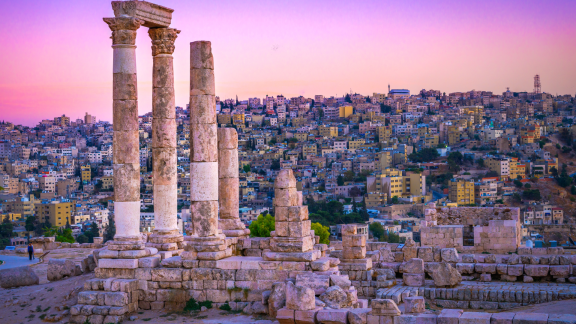
National holiday
Independence Day
Wadi Rum: Jordan's desert wonder
Emigrating to Jordan means experiencing the breathtaking nature of Wadi Rum, which is located in the south of the country in the Hisma Desert. With an area of 740 km², it is the largest dried-up desert river course in Jordan. Due to its scenic beauty and cultural significance, Wadi Rum was recognized by UNESCO as a World Cultural and Natural Heritage Site in 2011. Popular activities include overnight stays under the stars, horse riding with Arabian horses and hiking and mountaineering in the impressive rock formations. Anyone wishing to emigrate to Jordan will find an unforgettable nature experience in this unique landscape.
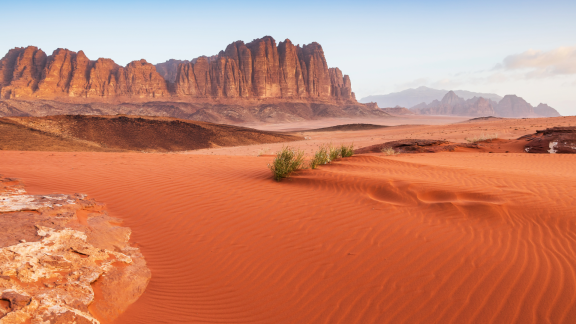
Emigrate to Jordan - Entry Requirements
Entry is possible for German nationals with the following documents:
- Passport: Yes
- Temporary passport: Yes
- Identity card: No
- Temporary identity card: No
- Children's passport: Yes
Notes/Minimum residual validity:
Travel documents must be valid for at least six months at the time of entry. The minimum remaining validity period is strictly controlled.

FAQs for emigrating to Jordan
Where can I find relevant information about my country of entry and the entry regulations that apply there?
We have compiled destination country information as well as entry requirements and customs information for many countries in the Relocation Service section of our website and are constantly expanding this section.
Can I use my own container that I already own for the move with DACHSER & KOLB?
For every removal, which we at DACHSER & KOLB always offer as a door-to-door (full service) removal, a container is rented for the duration of the removal. We therefore do not offer the option of using your own container.
Who is responsible for my move abroad and the services I need there?
As a FIDI member, we work abroad with selected, long-standing partners who work in accordance with our service standards.
Are my removal goods insured in the event of damage?
For every overseas move, we naturally cover transportation insurance at current value for the used household goods and personal belongings
What types of transportation do you offer for overseas relocation?
It is generally possible to carry out overseas removals via air freight or sea freight. In the case of sea freight, it is possible to ship the removal goods as additional cargo (“LCL shipment” with Liftvan) or with a container (FCL shipment in 20 feet, 40 feet or 40 feet high cube). We will be happy to discuss which option is best for you in a personal consultation.
When and how must the move be paid for and what is the payment deadline?
You will receive an invoice a few weeks after placing the order and pay the full amount directly in advance.
Do I have to pay taxes and customs duties on my removal goods?
Removal goods can be imported tax and duty-free into most countries if you have a valid residence permit. We will be happy to check the options for importing the removal goods for your desired destination country in a personal consultation.
Are you interested in moving to Jordan or another destination country?
Then do not hesitate and contact us today.
Sabrina Klier
Customer Service & Sales - AIR & SEA



